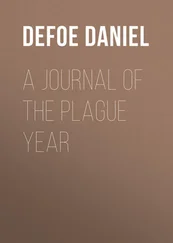Befitting their name, the Sanitation League also cleaned houses. Rieux often delegated this non-urgent task to others. On the first day of the New Year, a request to clean was called in and no one else on the team was available. When Mrs Rieux saw her son with a mop and bucket and learned of his task, she volunteered her services.
“You did this for thirty years,” Rieux said, waving her aside. “You’ve earned your rest.”
She flung her hand in the air. “Don’t waste thirty years of experience!”
“What if you get sick?” Rieux replied. “I would never forgive myself.”
Her nose wrinkled so far back into her face that Rieux could see the grey hairs in her nostrils. “I have lived long enough—I feel like I’m already living my second life,” she told him. “Don’t act as though you are ashamed of me or what I did to feed you and your sister.”
She didn’t give him a choice. He relented. She giggled as she put on her jacket and slipped on her face mask. “I let you sit in a chair and read when you were a boy. But now you will scrub with me.”
They boarded a van that Rieux had rented, filled with biohazard cleaning materials. Mrs Rieux held her phone in her lap, listening to Cantonese opera as they drove.
They turned up at a rooming house five blocks from Rieux’s clinic. A familiar face opened the door: Rieux’s favourite patient, Walter. He had called in with a pseudonym: Willy Love. He was dressed in a white sleeveless undershirt, a black baseball cap, and cut-off denim jeans. He was barefoot.
“Welcome, welcome!” he said.
“Happy New Year, Walter.”
Walter had an attic space in the rooming house. Mrs Rieux pulled the mop and pail out of her son’s hands and started right away in the bathroom. “This is going to take a while,” she said in a voice that was not displeased. Despite her threats, she seemed content to clean alone.
Walter asked Rieux if he wanted tea. Rieux declined, leaving him to make his own cup. Rieux’s patient invited him to sit in his bedroom, which was up a set of stairs. The room was filled with clay sculpture, abstract figures in the shape of bonsai trees but with the texture of sea foam and human musculature. A single bed was pushed up against a wall on which Walter had taped some faded photos. There was only one chair, so Walter sat on his bed. The room itself was too sparsely furnished to be messy, but it did have a smell.
“Everyone else is gone,” Walter announced. “They’ve all died.”
The landlady who lived downstairs had fallen ill first; her son started to collect the rent. Then two other longtime tenants were taken away last week. Neither of them returned. In a less dire situation, Rieux would have evacuated him, but there was no place to send Walter. The city had had a vacancy problem before this all started.
Rieux could hear his mother singing Cantonese opera from the bathroom downstairs. Her voice echoed from the empty tub.
“Why haven’t you come by the clinic these last couple of months?” Rieux asked. “I used to see you all the time.”
“You would never tell me I was sick,” he said, “so I went to other doctors. They didn’t tell me what I wanted to hear either.” As he spoke, he reclined until he was flat on the bed. He traced the edges of the faded photos taped to the wall. “Now it’s just me, and I need to stay here alone, remembering everyone.”
There were red marks on his arms and feet, possibly from bed bugs. They, like Walter, were indestructible. Rieux would call the landlady’s son to ask him to get an exterminator to the property. Walter caught him looking at the red marks. He pointed to a figure in one of his faded pictures.
“This old friend taught me how to tattoo with ink and a sewing needle, and for a while I would give tattoos to lovers and acquaintances. I got pretty good, but I never experimented on myself. I was terrified of needles. And I loved the body God gave me.”
“What changed?” Rieux asked. “Was it the disease? The quarantine?”
He nodded. “It felt like old times. I was watching people around me dying—again. These were the people who did nothing wrong the first time. Everyone just stood by. Doctors just like you.” He sat up. “Do you know what time it is?”
Before Rieux could answer, Walter said that he’d stopped counting the days. “I can’t tell you when, exactly, but I became so sad that I couldn’t bear time passing,” he continued. “I saw the Christmas trees, but I don’t know what day of the month it is unless someone makes me sign a cheque or wishes me a happy new year. My assistance payments come electronically.”
The day the barricades went up, Walter continued, he thought about his old friends again. He remembered, in particular, the friend who taught him how to tattoo. This friend had thrown himself in front of a train.
Rieux stared at Walter’s relatively unblemished body and thought that it didn’t look the way the body of someone who suffered from serious illness might look.
“I got out a sewing needle. I only had red ink. And I marked myself. The day after that I marked myself again. Now I use it to keep track of the days we have been locked up together. If I want to know how long everyone has been suffering the way I have, I just need to roll up my sleeve.”
Rieux’s mother popped her head into the room. “Finished!” she said. “Would it be alright if I cleaned the kitchen?”
As they waited, Walter asked if he could listen to music. “You can wait with me,” he told Rieux. “But I have talked enough.” He found an AM station that played Top 40 songs. The room was warm, which somehow made Rieux’s eyes burn. In the past few weeks, the doctor had shuffled between various types of fatigue—double-blinking tired, tired in the feet, tired in the shoulders, emotional exhaustion, tired from being around people. On top of this, he experienced a state of being submerged. In this frame of mind, he imagined himself as a sea mammal that could hold his breath indefinitely but became increasingly fixated with that undetermined moment when he would have to break the surface.
In these middle days of the quarantine, any word of stemming the disease was shushed away as false hope. Rieux wanted to be impervious to these vagaries of feeling. If he did all he could, he wouldn’t ever need to regret his decisions.
He could have altered his wife’s prognosis if he had more forcefully urged an aggressive treatment strategy. She had initially chosen to revamp her diet and seek alternative treatments before she visited an oncologist, but he could have overruled her. He pushed away these thoughts by working so hard that sleep, when he gave in to it, obliterated him.
Rieux craved exercise and air. He daydreamed about taking a forest hike. But he was worried about what might come when he stopped working. It could be physical collapse. It could be listlessness. It could be some insight that he was trying to evade.
_________
When Raymond Siddhu came to him with his plan, Rieux did not hesitate. Farhad Khan’s nameless friend might have been in trouble with the law, but he did not deserve to die. Rieux asked Khan to secure antibiotics and ensured that they were administered correctly. He checked on the patient daily. The man’s recovery was atypically prompt. Within a week, he was back on his feet and working again in the smuggling trade.
“Are you lonely, doctor?” Khan asked Rieux after his friend was given his last check-up. Siddhu had accompanied him.
“I have my mother to keep me company,” Rieux said. “Otherwise I’m too busy to feel lonely.”
Khan slapped Rieux’s arm. “No, don’t play stupid with me, okay? I can introduce you to friends of mine. Lovely girls. They have heard about your hero stuff and would like to meet you.”
Читать дальше












